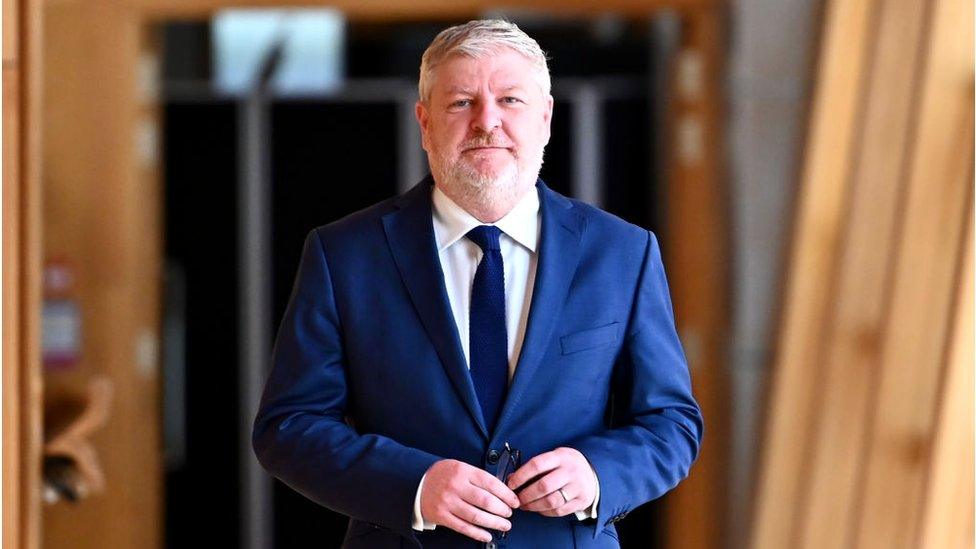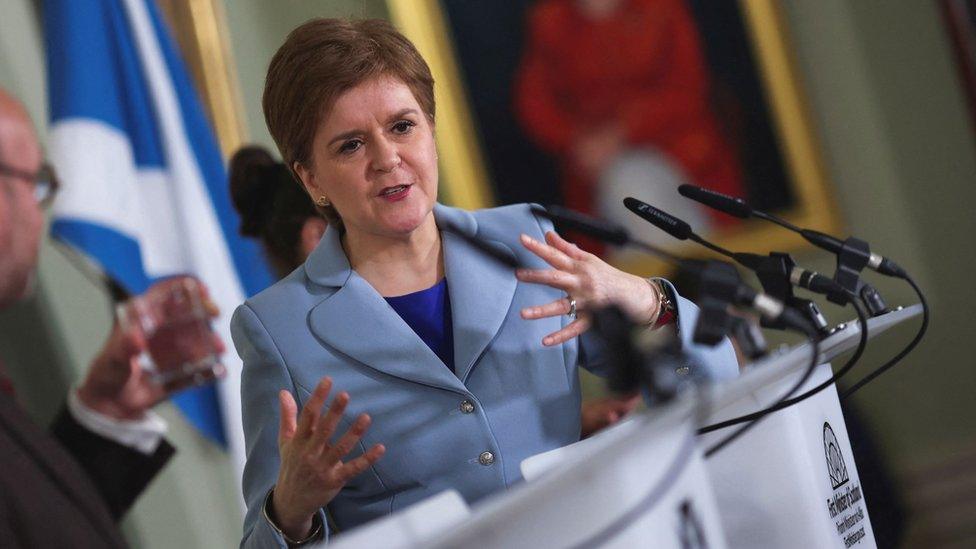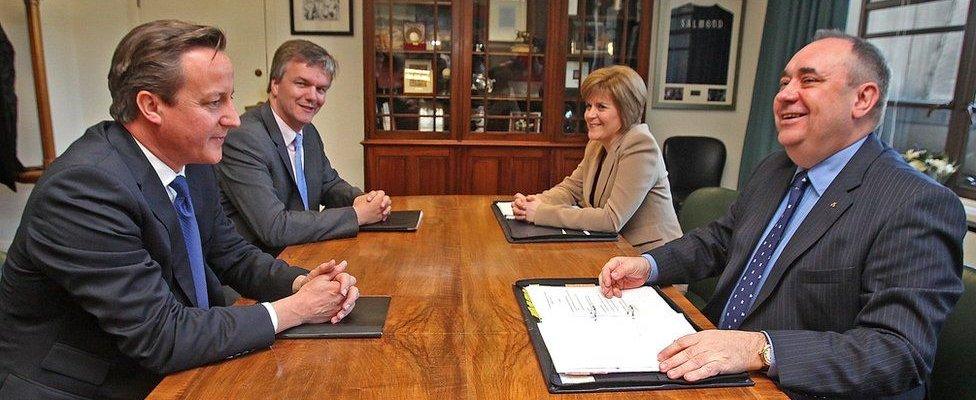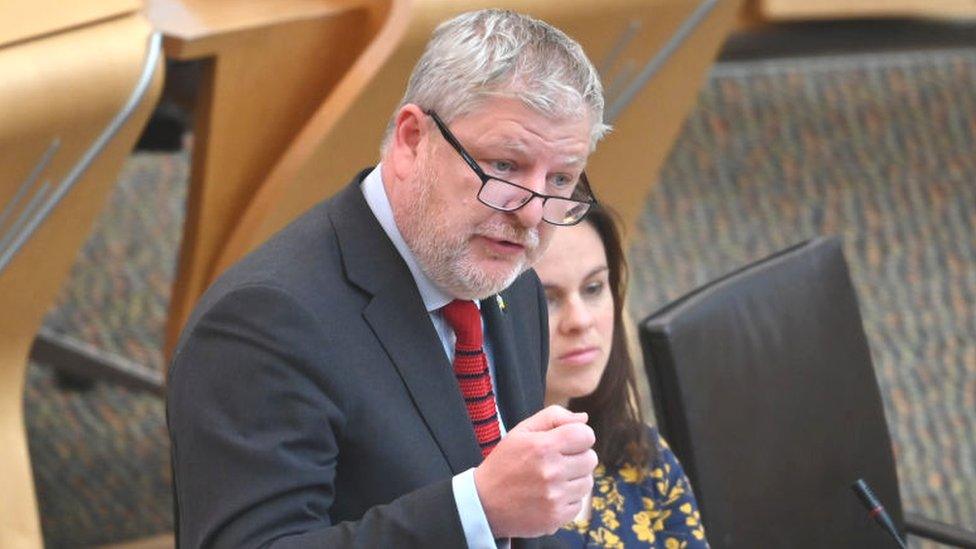No reason Scotland can't have legal Indyref, says SNP
- Published

Angus Robertson said the SNP would push for the preferred option on independence - a legal section 30 order
There is no reason why Scotland cannot have a legal independence referendum, the constitution secretary has said.
Angus Robertson told the BBC that the SNP would continue to push for a vote based on a section 30 order - as agreed by the Scottish and UK governments.
His comments came as The Sunday Times, external reported that ministers were preparing a consultative referendum next year.
It said this could "attempt to bypass the UK government" by phrasing the independence question in another way.
The SNP plans to hold a second referendum in October 2023. However, the UK government said now was not the time for another vote.
Speaking on BBC Scotland's The Sunday Show, Mr Robertson said: "We will continue to press for the gold standard - which the 2014 referendum showed itself to be.
"With a section 30 a legal referendum could go ahead and be recognised by the UK government and other countries."
"Given we have precedent, and it worked and wasn't complicated, and with mutual respect, it was something we could all agree on.
"If it was possible then, there is no reason why it is not possible now."

Nicola Sturgeon unveiled her case for Scottish independence on Tuesday
The Sunday Times suggested the First Minister could take a different route to an independence vote, avoiding a section 30 order.
It reports that Nicola Sturgeon could avoid a possible legal challenge with a reworded question.
Instead of repeating the 2014 referendum question, "Should Scotland be an independent country?", it said a "softer" approach asking if Scotland should open independence negotiations with London could stand a better chance in court.
Mr Robertson declined to comment on any alternative plans.
He said any constitutional plans had to be announced in the Scottish Parliament and Ms Sturgeon would be give an update before summer recess.

What is a section 30 order?

Ms Sturgeon was one of the signatories to the previous "section 30" agreement, in 2012
A section 30 order refers to the section of the Scotland Act that allows Holyrood to pass laws normally reserved to Westminster.
These have been used 16 times since the Scottish Parliament was created in 1999, and have allowed MSPs to legislate in areas from the construction of railways to reducing the voting age in Scottish elections.
A section 30 order was granted by the UK government ahead of the 2014 independence referendum, after Prime Minister David Cameron and First Minister Alex Salmond signed the "Edinburgh Agreement".
Find out more: Scottish independence: What is a section 30 order?

Scottish Labour leader Anas Sarwar, also appearing on The Sunday Show, dismissed the idea of a second referendum.
He said: "The next electoral contest is not a referendum, it is going to be a general election and that is going to be a campaign to put out Boris Johnson.
"The anger we feel sitting in Glasgow, is felt in Edinburgh, it is felt in Cardiff, Birmingham, Manchester and London. Let's unite across this country, put out Boris Johnson.
"I honestly believe the majority of people still don't want independence."
'Threadbare case'
On Saturday, the first minister accused opposition parties of "running scared" of the debate on Scotland's future.
The Scottish government published a paper comparing the UK with other nations which Ms Sturgeon claimed are "wealthier, fairer and happier" than the UK.
"The Tories and Labour have completely failed to engage with that point because they know it is true and because they can see how threadbare the case for continued Westminster rule over Scotland has become," she said.
A UK government spokesman said: "Now is not the time to be talking about another referendum.
"People across Scotland rightly want and expect to see both of their governments working together with a relentless focus on the issues that matter to them, their families and communities.
"That means tackling the cost of living, protecting our long-term energy security, leading the international response against Russia's invasion of Ukraine and growing our economy so that everyone has access to the opportunities, skills and jobs for the future."
- Published15 June 2022

- Published14 June 2022
